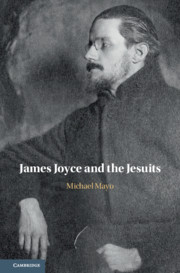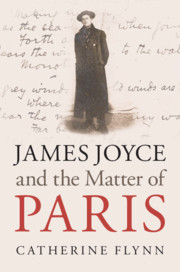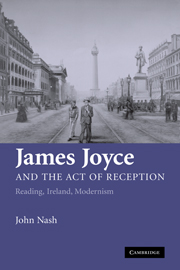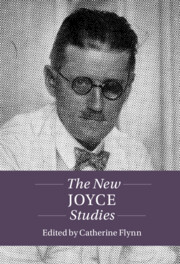James Joyce and the Jesuits
£90.00
- Author: Michael Mayo, University of Oxford
- Date Published: April 2020
- availability: In stock
- format: Hardback
- isbn: 9781108495295
£
90.00
Hardback
Other available formats:
eBook
Looking for an inspection copy?
This title is not currently available on inspection
-
James Joyce was educated almost exclusively by the Jesuits; this education and these priests make their appearance across Joyce's oeuvre. This dynamic has never been properly explicated or rigorously explored. Using Joyce's religious education and psychoanalytic theories of depression and paranoia, this book opens radical new possibilities for reading Joyce's fiction. It takes readers through some of the canon's most well-read texts and produces bold, fresh new readings. By placing these readings in light of Jesuit religious practice - in particular, the Spiritual Exercises all Jesuit priests and many students undergo - the book shows how Joyce's deepest concerns about truth, literature, and love were shaped by these religious practices and texts. Joyce worked out his answers to these questions in his own texts, largely by forcing his readers to encounter, and perhaps answer, those questions themselves. Reading Joyce is a challenge not only in terms of interpretation but of experience - the confusion, boredom, and even paranoia readers feel when making their way through these texts.
Read more- Performs a series of fresh and profound close readings, offering radically new interpretations of key texts in the literary canon
- Analyzes Joyce's work in its religious context., taking a non-partisan approach and looking at the actual contours of Jesuit practice alongside Joyce's work
- Uses Kleinian theories of paranoia and depression to address questions of literary aesthetics
Reviews & endorsements
'Michael Mayo's lucidly written, patiently reasoned James Joyce and the Jesuits argues that 'Joyce's work addresses itself to particular crises of belief and representation generated by Ignatius of Loyola' in his Spiritual Exercises (1522–1524)… Mayo leaves us with a highly compelling conceptual framework: one that others might well profit from and apply further in their own engagements with the frustrations and enigmas of Joyce's art, and also its playfulness.' James Joyce Broadsheet, No. 123
Customer reviews
Not yet reviewed
Be the first to review
Review was not posted due to profanity
×Product details
- Date Published: April 2020
- format: Hardback
- isbn: 9781108495295
- length: 234 pages
- dimensions: 235 x 158 x 18 mm
- weight: 0.46kg
- availability: In stock
Table of Contents
1. Introduction
2. The disturbed mind
3. Beyond the Uncle Charles Principle
4. The labour of reading: Joyce with Klein
5. Kleinian Aesthetics
6. Discernment and indifference
7. It was pitch dark almost
8. Substantiation
9. Conclusion: The transference
Bibliography
Index.
Sorry, this resource is locked
Please register or sign in to request access. If you are having problems accessing these resources please email [email protected]
Register Sign in» Proceed
You are now leaving the Cambridge University Press website. Your eBook purchase and download will be completed by our partner www.ebooks.com. Please see the permission section of the www.ebooks.com catalogue page for details of the print & copy limits on our eBooks.
Continue ×Are you sure you want to delete your account?
This cannot be undone.
Thank you for your feedback which will help us improve our service.
If you requested a response, we will make sure to get back to you shortly.
×



